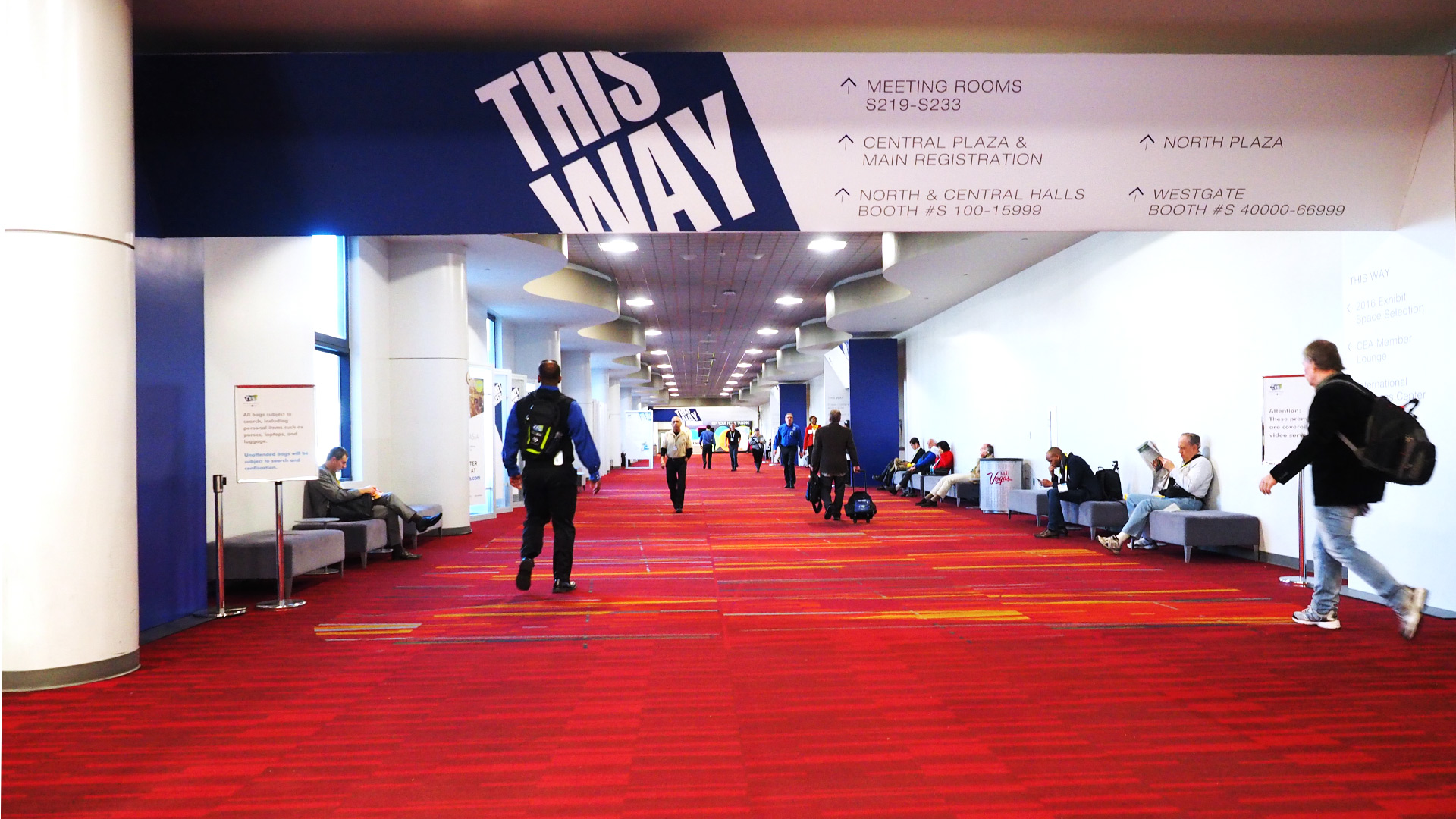Enough already, it's time for a Metaverse CES
Opinion: CES overcame huge obstacles but it's time to look to the buzziest CES 2022 technology for future survival

CES 2022 wasn't a bust. It was strange, slightly disassociating (like having your head floating a few inches off your body) but not unpleasant (also like your head floating over your body).
We all got through it and, while only a fraction of the normal number of attendees and exhibitors were there in person, the event was still filled with wild new products, silly and awesome ideas, and even star power.
And there was the Metaverse.
In my unscientific estimation, "The Metaverse" was mentioned 2,000 times over the course of the slightly abbreviated four-day event.
It's how robots will be our digital twins.
It's how we'll exercise.
It's how we'll stay healthy.
Sign up for breaking news, reviews, opinion, top tech deals, and more.
It's how we'll pay.
It's how we'll immerse ourselves in other worlds.
To be honest, the Metaverse story at CES wasn't even all that compelling -- but the urge to make this unreality a reality in our consumer electronics lifetime was pervasive.
Battle of the buzzwords
Metaverse competed for the most-talked-about tech-term pole position with NFTs, but unlike that ungraspable crypto-craze, the Metaverse is an old idea that many of the companies at CES have been toying with for years -- though not by that name.
Metaverse is a portmanteau of meta and universe used to describe a virtual universe, accessed by virtual reality -- and it's taking over the tech world.
* The Metaverse, explained: Your most pressing questions about tech's new obsession answered.
* Facebook goes all in: The social network's name is now Meta. Here's what it means and why.
* First things first: Keeping the metaverse secure is priority number one. Cisco told us how.
Sony presented its own compelling argument for the Metaverse without ever actually saying the words. Its upcoming PlayStation VR 2 and PSVR 2 Sense controllers with eye-tracking could lead to one of the more immersive Metaverse experiences on the market.
Hyundai's (and Microsoft Azure's) Digital Twin Concept might have offered the most compelling Metaverse vision of all of CES 2022. Instead of you engaging with others in a virtual world, you use Microsoft's Azure Cloud and its knowledge of connected systems and a Boston Dynamics' (now owned by Hyundai) robot to be the physical you in the space. Maybe the robot is working inventory or helping you remotely fix a system, or, just maybe, it's "you" on the real floor of the next CES.
Gadget FOMO
CES, and its parent (the non-profit CTA) did not come out unscathed from its controversial decision to hold a large, in-person event in Las Vegas, Nevada, during a pandemic. Personally, I felt for them. So much planning and care went into this year's event. They thought they had all the right health protocols, but could not prepare (really, none of us could) for the Omicron surge.
I along with countless others chose to stay home but suffered severe FOMO for the gadgets, experiences, and robots I could not see in person.
Now imagine if I could have connected to a remote Boston Dynamics Spot robot, one that knew the show floor layout and was equipped with a high-res camera, microphones, and speakers. I could remotely walk the show floor. And because Spot is a robot with some autonomy, it would know how to avoid other people, obstacles, and move on when there's no one to talk to or nothing to see. It could, essentially, walk all around and let me know when there's something cool to check out.
That's a Metaverse Phase 1 I could get behind.
A Metaverse CES
Even so, the success of this partially digital CES proves a point I made a few weeks back: CES does not have to be in person, at all. The streamed keynotes were interesting and engaging. I do not know if I would have been any more excited about Sony bringing out Spider-Man star Tom Holland if I'd been there in person.
The conference sessions I attended virtually were interesting (Pete Buttigieg made a compelling case for a tech-and common-sense-focused transportation future). What some of the virtual engagement lacked was a connection with other attendees.
CES has a decent mobile app that tries to encourage virtual and in-person engagement, but that seemed mostly a bust this year.
The Metaverse could help by putting the streaming keynotes on the digital stage and us VR headset-wearing attendees virtually milling around in the audience.
Granted, this won't' be possible (or advisable for sessions that last longer than 15 minutes) until we get much lighter head gear and more immerse bodywear that can help us feel the entire CES experience.
The Metaverse won't happen right away - or really any time soon - but it's a kernel of an idea that could save CES for generations to come.
- Check out all of TechRadar's CES 2022 coverage. We're bringing you all the breaking tech news and launches, everything from 8K TVs and foldable displays to new phones, laptops and smart home gadgets.

A 38-year industry veteran and award-winning journalist, Lance has covered technology since PCs were the size of suitcases and “on line” meant “waiting.” He’s a former Lifewire Editor-in-Chief, Mashable Editor-in-Chief, and, before that, Editor in Chief of PCMag.com and Senior Vice President of Content for Ziff Davis, Inc. He also wrote a popular, weekly tech column for Medium called The Upgrade.
Lance Ulanoff makes frequent appearances on national, international, and local news programs including Live with Kelly and Mark, the Today Show, Good Morning America, CNBC, CNN, and the BBC.